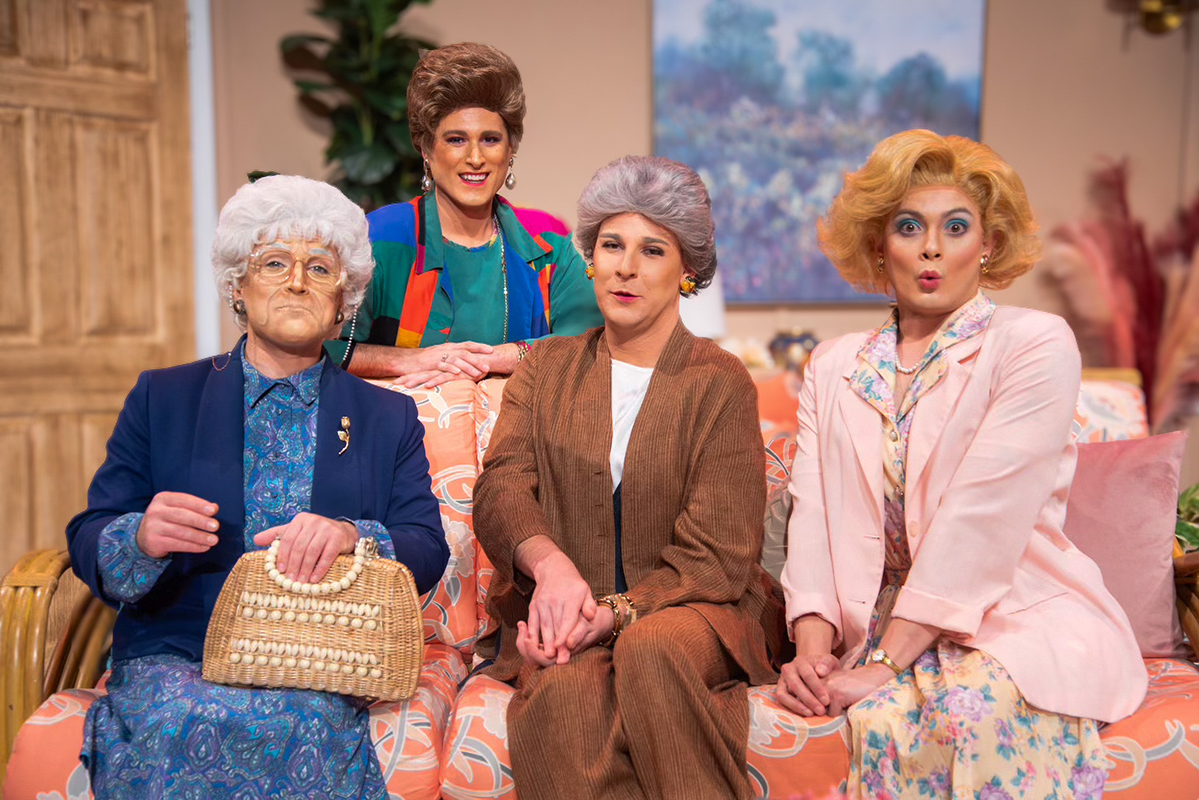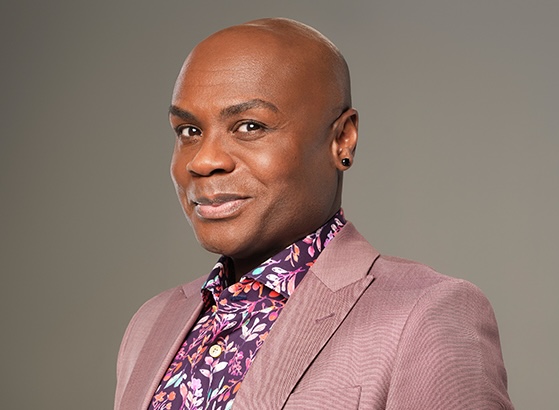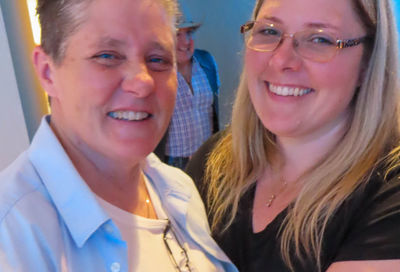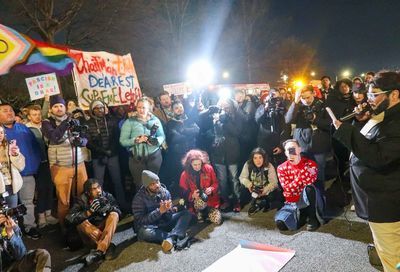Gay and Golden
Commentary: Stonewall Baby
Estelle Getty’s death July 22 underscored an issue that a friend raised while standing on a roof earlier last month, watching the fireworks over Washington. He asked about our retirement plans. Granted, I’m not yet in my 40s and my partner only barely is — though you’d think he was years younger than me by the look of us — we have thought about it, even if only in the abstract.
This friend, his partner, along with me and mine, could all be considered ”Generation X.” Altogether, we are possibly living the prophecies that foretold of the first American generation to have a lower standard of living than its forebears. I don’t necessarily agree with that, but I do know I’ve never had a job that offered a pension, nor is it likely I ever will.
![Estelle Getty [front] with cast of 'The Golden Girls'](/articles/attachments/2008-08-07_commentary_3679_4301.jpg)
Estelle Getty [front] with cast of ‘The Golden Girls’
And that’s why Estelle and The Golden Girls come to mind. Sophia, Blanche, Dorothy and Rose have contributed hugely to my retirement plan.
Though it may have ended in 1992, this show still enjoys a huge gay following. That could be for its then-pioneering notion of elderly people having sex, Rose’s HIV test or Blanche’s gay brother. Or Dorothy’s lesbian friend. Or Sophia’s transvestite son. There are so many reasons for the pink appeal. Foremost, however, is that it gave us an idea of how we might want to craft our own golden years.
Senior communities catering to GLBT elders have begun popping up, though not nearly in great enough numbers or affordability to accommodate all those wild kids who came out in Stonewall’s wake or at Haight-Ashbury. Without kids or a partner, making it to an age where you might need a little assistance would likely mean moving into an assisted-living situation and back into the closet. Despite strides, it’s still going to mean that for many.
When I came out, The Golden Girls were still running in prime time. As I would daydream during high school chemistry — imagining my life working as a foreign correspondent for the BBC with my hot, French boyfriend — the end of the road looked something like The Golden Girls.
What the show illustrated for me was that as long as I wasn’t an anti-social jerk, I might avoid becoming the sour, cardigan-sporting hermit I would see meandering the aisles of the local Publix grocery store, stocking up on 39-cent cans of cat food — for himself, I feared. Instead of relying on kids that were not in my plan, I could craft security out of ”chosen family.”
Still some 25 or so years away, I think about this inevitability — barring fatal calamity — with increasing frequency. And though this bit of post-menopausal pop culture is a sort of template, I’ve got substantial tweaks in mind.
Florida is not part of the plan — too socially conservative, dreary and culturally lacking. I may not have a pension, but I do have more mobility than my parents’ generation. I can be in Costa Rica in four hours, or Thailand in a day. The price of jet fuel is skyrocketing, but I imagine that once my hair has gone entirely gray or fallen out altogether, the world will still be within reach. So why would I stay in America? American factory workers may be competing with Chinese counterparts in the new globalism, but the upside is that my retirement options aren’t limited to Palm Springs or Fort Lauderdale. If I can find a lovely spot that is gay-friendly and where my meager retirement income goes further, that is where I’ll be. And I want my partner, my friends from the roof, and quite a few others to come along.
Like those Miami matrons, I want to end my life communally. Spending these productive years in Washington, ”community” is not really at the top of the list. Here, it’s networking. Even an effort to hold down a monthly happy hour to keep up with friends fell apart after a few months. People are just too busy, myself included. At this stage, in this place, I find I have more community online than next door.
I hope to make up for that lost time by moving into a 10-bedroom home with a slew of other gay friends, enjoying a view of the sea and their company, pooling our resources to take care of one another. Every now and again, we’ll fire up the satellite dish or Web TV and catch a re-run of The Golden Girls. And every man in the room will still say, ”I’m totally Blanche.”
Will O’Bryan, Metro Weekly‘s managing editor, was born as the Stonewall Riots ended, making him a Stonewall Baby, he insists. He can be reached at wobryan@metroweekly.com.
Support Metro Weekly’s Journalism
These are challenging times for news organizations. And yet it’s crucial we stay active and provide vital resources and information to both our local readers and the world. So won’t you please take a moment and consider supporting Metro Weekly with a membership? For as little as $5 a month, you can help ensure Metro Weekly magazine and MetroWeekly.com remain free, viable resources as we provide the best, most diverse, culturally-resonant LGBTQ coverage in both the D.C. region and around the world. Memberships come with exclusive perks and discounts, your own personal digital delivery of each week’s magazine (and an archive), access to our Member's Lounge when it launches this fall, and exclusive members-only items like Metro Weekly Membership Mugs and Tote Bags! Check out all our membership levels here and please join us today!






















